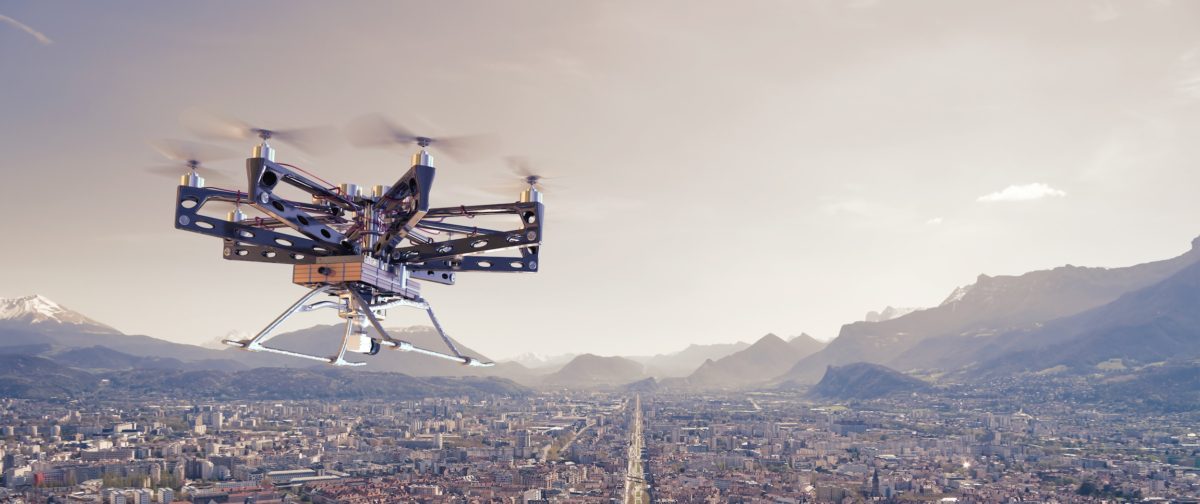The introduction and popularization of drones has brought new opportunities for companies in a vast number of industries. It is possible that we are witnessing a disruption similar to the one caused by information technology and telecommunications that altered business models of companies and reshaped whole industries.
Drones, or officially, the Unmanned Aerial Vehicles (UAV) are the aerial vehicles that are capable of flying without a human pilot on the board, autonomously or under the remote control. UAVs have been used in military service for some time already and are becoming increasingly popular in the business operations. Drones are currently being tested by Amazon (Amazon PrimeAir) or DHL (Parcelocopter) in companies’ logistic operations.
According to the report Clarity from above published by the PwC in May 2016 the addressable market value of drone powered solutions is estimated at over $127 bn. This is the value of labour and business services that may potentially be replaced by the broad applications of UAVs for business in the nearest future. The affected industries are diverse and range from agriculture to filmmaking. By implementation of the drone technology into their current processes, companies will be able to create new businesses and operating models.
Drones, thanks to the diverse individual characteristics of industries, will be used in many different ways and for various purposes. For example, the transport industry can use UAVs for e-commerce package delivery, fleet management, spare parts delivery or same-day food delivery. The most relevant features of drones for this industry are their speed, accessibility and low operating costs compared with the means of transport that require human labour. The next example is the infrastructure management. Railway, energy and oil and gas companies can use drones effectively for investment monitoring, maintenance and inventory management. Drones may prove to be valuable tools as they are capable of acquiring various data precisely and cost-effectively. What is more, UAVs can replace humans in some hazardous activities, and therefore reduce the number of accidents and increase the overall work safety.
However, there are also factors that may block or make the implementation of drone powered solutions more troublesome and thus slow down the adoption of drones in the business. The first potential barrier are legal regulations. Business entities need clear and transparent rules on how and where drones can be used and how to ensure the safety of drone operations. Another barrier for popularization of drones in business are privacy issues linked to these devices. Data collected by drones may contain private or sensitive information. Clear rules on which information can be collected and stored and how the privacy rights can be defended should be introduced. The last obstacle for popularization of commercial usage of drones is safety. Drone operations have to be supervised and a complex air-traffic management system should be developed in order to eliminate the risk of collisions with other aerial vehicles. Additionally, an auto-fail function, that would prevent the drone from uncontrolled fall to the ground should be included in every UAV.
Drones may bring plentiful of opportunities and benefits to many industries and revolutionize the companies’ operations forever. However, there are also aspects that may make the adoption of drones in the business difficult or impossible. What is your opinion on the future of commercial usage of drones?
Sources:
- https://www.amazon.com/b?node=8037720011
- http://www.thefreedictionary.com/Unmanned+Aerial+Vehicle
- http://www.pcworld.com/article/3082649/tech-events-dupe/dhls-parcelcopter-is-automated-drone-delivery-in-action.html
- http://www.pwc.pl/en/publikacje/2016/clarity-from-above.html

